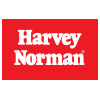History
The establishment of New Zealand’s first ever Rugby League side would come off the back of the 1905 All Blacks tour of Great Britain.
During the tour, members of the New Zealand outfit were exposed to the breakaway code of Rugby in the North of England, and were impressed by not only its ability to draw a crowd, but the open nature of the sport. So much so, that All Black, George William Smith, on his return from the United Kingdom would reach out to Australian entrepreneur, JJ Giltinan with plans to introduce the code to Australasia.
At the same time this was happening, a less known New Zealand player, Albert Henry Baskerville, had come across Rugby League and was keen to create a New Zealand touring party to travel to the United Kingdom to play the sport.
Baskerville wrote to the then Northern Rugby Football Union (NRFU) to see if they would host his New Zealand side. Naturally the NRFU agreed, seeing it as an excellent opportunity to raise their profile and finances. However the NRFU had one requirement that the side featured players from the 1905 All Blacks tour.
Fortunately for Baskerville, George William Smith found out about the tour and was happy to assist in helping sign up fellow All Black players for the tour.
The New Zealand side was formed and it would sail across to Great Britain in 1907 to take on Wales, England and a Northern Union (Great Britain) side as part of its tour. Prior to reaching Europe, the side would stop in Sydney to play a New South Wales Rugby League team in a three match series which would help finance the formation of the NSWRFL and the first domestic competition in Australia.
The New Zealand side would play Wales in their first ever Rugby League international on New Year’s Day, 1908 in Aberdare. In front of over 20,000 fans, Wales would edge the visiting New Zealand side, before the touring team would go down to England 18 - 16 and Lancashire 20 - 4.
Despite a less than ideal warm up to the Test Series against the Northern Union (Great Britain), New Zealand would win the 1908 Test Series 2 - 1, with wins in London and Cheltenham to claim the series.
After the successful series victory, a number of New Zealand’s top players were signed by British clubs, depleting the touring squad. Despite this, the side would make a detour to Australia, and play a further 10 tour games.
Unfortunately during this time, chief organiser, Albert Baskerville contracted pneumonia and would pass away on tour.
The first official club match in New Zealand would be played in Baskerville’s honour later that year in Wellington with members of the touring squad playing to raise funds for his widowed wife.
Despite the success of the New Zealand ‘All Golds’ tour of Australia and the United Kingdom in helping boost the respective competitions in Australia, Wales and England, Baskerville’s death limited the growth of the sport domestically in New Zealand. Threats by the New Zealand Rugby Union to ban players who converted also limited the growth, however by 1910 the game had established roots in Auckland, Taranaki, Rotorua, Nelson, Southland, Wanganui, Marlborough, Invercargill and Hawke's Bay.
In that same year Great Britain would make their first tour to the Southern Hemisphere, and the visit from the Lions helped the New Zealand Rugby League enjoy a significant period of growth, with the home side drawing over 40,000 for Test Matches in Auckland by the 1920’s.
In 1926 the NZRU took the NZRL to court over the use of the ‘All Blacks’ name for the national touring side. The NZRL felt that they had equal ownership to the name and were not ready to relinquish it. However, by this time the press had already nicknamed the team 'the Kiwis', because of the badge included on their jerseys. Despite the League trying to discourage its usage, the name has stuck ever since.
By 1938 the NZRL decided to officially name the Test team the 'Kiwis' and add the White V, so famously associated with the side, to the jersey.
Over the following decades, New Zealand would enjoy windows of being one of the top sides in International Rugby League, with strong performances from 1947 - 1951 and 1961 - 1963. These performances however never seemed to align with Rugby League World Cups, with the New Zealanders finishing last in 1954 and 1968 and second last in 1957 and 1960.
The Kiwis did however collect the Courtney Goodwill Trophy for most successful test-playing nation between 1960 - 1965.
New Zealand’s poor performances at Rugby League World Cups continued into the 70’s with the Kiwis finishing last in 1970 and 1972 and second last in 1975 and 1977.
It was however the following World Cup, in 1985 - 1988, that luck began to change for the New Zealanders in the premier international tournament, with the side qualifying for their first ever final.
The tournament, which kick started in 1985, saw the Kiwis record their first ever victories over Australia (18-0) and Great Britain (12-10) in a World Cup match, and earn the right to host the final at Eden Park in 1988. Unfortunately for the Kiwis, in front of a crowd of over 47,000, the Kangaroos would win 25 - 12.
The Kiwis, to this day, still have never won a Test Match at Eden Park.
The following World Cup saw the Kiwis miss out on the tournament final based upon For and Against, after finishing equal points with Great Britain, still despite finishing third, it showed that New Zealand were coming of age in Rugby League World Cups.
The Kiwis would go on to make the semi’s in the 1995 tournament, losing to Australia in extra time at Huddersfield, before qualifying for the main tournament Final in the following three World Cups (2000, 2008, 2013).
2008 being of course a watershed tournament for the Kiwis with New Zealand claiming their first ever World title, after defeating the Kangaroos 34 - 20 in front of over 50,000 fans in Brisbane.
This win would just be one of multiple pieces of silverware the Kiwis would collect over the next decade, with the side also winning the 2010 and 2014 Four Nations series to add to their 2005 Tri-Series trophy.
In 2015, the Kiwis would be crowned the number one team in the World following their 2014 Four Nations victory and 2015 Mid-Season Test win against Australia. It would be arguably the first time the Kiwis held the title since they were awarded the Courtney Goodwill Trophy back in the 1960’s.
Domestic Scene
Rugby League is played throughout all parts of New Zealand, with the New Zealand Rugby League (NZRL) the managing body for the code in the country.
The premier Rugby League club in New Zealand is the Auckland based Warriors who participate in the National Rugby League (NRL) competition. The Warriors also have sides in the National Youth Cup (U20’s) and the New South Wales Cup Rugby League Premiership competition.
The NZRL run a National Premiership and National Championship regional competition, with Akarana Falcons the current 2016 National Championship after defeating Counties Manukau 32 - 12 at Mt Smart Stadium in Auckland.
In the National Championship, Waikato won the 2016 title and were promoted to the 2017 National Premiership after defeating Wellington 38 - 14 in the Promotional / Relegation match.
Rugby League in New Zealand is currently played at all age groups with more than 24,000 participants registered to clubs, plus thousands of others taking part in other Rugby League related activities or variations of the sport including Touch and Tag.
National Team Stats
Moniker: Kiwis
Colours: Black and White
Coach: David Kidwell
First Test: Wales 9 d. New Zealand 8, Aberdare, Wales 1908
Best World Cup Result: Winner (2008); Runners Up (1988, 2000, 2013)
Famous Players
New Zealand boast many famous players who have graced the field over the years and who have proudly represented their country at the international level.
As such, we have listed each of the players who were included in the New Zealand Team of the Century. Each of these players have represented their nation and have careers which spanned at least a decade at the top level.
- Des White
- Tom Hadfield
- Tommy Baxter
- Roger Bailey
- Phillip Orchard
- George Menzies
- Stacey Jones
- Cliff Johnson
- Jock Butterfield
- Ruben Wiki
- Mark Graham
- Ron Ackland
- Mel Cooke
Ones to Watch
Heading into the 2017 Rugby League World Cup, let’s look at some of the players who will be integral to the success of the England in the upcoming tournament.
Kieran Foran: There is little coincidence that the Kiwis have only won one Test since Foran last played in the Black and White in the 2015 ANZAC Test. A proven performer at the international level, Foran not only bring the leadership and direction the Kiwis need around the halves, but he free’s up Shaun Johnson to be at his brilliant best. For the Kiwis to go all the way in 2017 and claim their second World Cup title, they will be wanting Foran to be on the field.
Shaun Johnson: An unbelievably talented player, Johnson has the creativity and vision to see opportunities which others can’t and has shown in the past he has the ability to almost win a game on his own. Paired with Foran, these two create a halves combination that can challenge Australia’s Thurston - Cronk combination, and will be integral to New Zealand’s chances in this year’s tournament.
Simon Mannering: A 41 Test veteran, Mannering brings a level of calm and confidence to every side he is in. A consistent performer whether in be in the forwards or in the centres, the Wellington junior has always done the jersey proud every time he has turned up for the Kiwis, and 2017 is unlikely to be any different.
Isaac Luke: Whilst most of the focus on the Kiwis team these days is around the halves, the reality is, if they aren’t getting good distribution from the play the ball, there is only so much Johnson and Foran can do. This is why Luke and his form heading into the World Cup will be so important for the Kiwis. With a lack of depth in the hooker position, Kidwell will be hoping for Isaac to show some of his form at South Sydney in 2017.
Jason Taumalolo: The Cowboys $10 million dollar man, Taumalolo is certain to feature in the monster Kiwis forward pack at this year’s tournament. An agile forward with an impressive offload in the arsenal, Taumalolo will give the Kiwis the rolling momentum they need to allow their backs to capitalise on most opponents at this year’s tournament.
World Cup Group Stages
New Zealand will host their own group at this year’s Rugby League World Cup, enjoying the opportunity to play in front of home crowds for the first time since the 2014 Four Nations tournament.
The side will go into each of their group games as favourites, though will want to redeem themselves against the Bravehearts after a surprised draw with Scotland during the last Four Nations series. The recent changes to international eligibility will see the Kiwis face far stronger opponents in these opening games than previous Rugby League World Cups.
For New Zealand, arguably the greatest ‘at risk’ game is their opener against Samoa in Auckland. With an ever growing number of players putting their hand up for Toa Samoa, including the likes of Anthony Milford, the Samoans will be looking to go one better than the last encounter between the two teams, where the Kiwis snuck home 14 - 12.
From there the Kiwis will play Scotland in Christchurch where they will be seeking revenge for last year’s result, before taking on the unpredictable Tonga in Hamilton as their final group game.
With three sides to progress from the pool, the chance of the Kiwis not qualifying for the finals is almost improbable, however they will of course need to be at their best to ensure they don’t slip up against some very confident opponents keen to collect an upset result.
Vs Samoa
Played: 3
W 3 – D 0 – L 0
Purchase Tickets to Samoa v New Zealand in Auckland on 28/10/2017
Vs Scotland
Played: 2
W 1 – D 0 – L 1
Purchase Tickets to Scotland v New Zealand in Christchurch on 04/11/2017
Vs Tonga
Played: 4
W 4 – D 0 – L 0
Purchase Tickets to Tonga v New Zealand in Christchurch on 04/11/2017
By Steve Birchall | @StevenBirchall
Contributor, RLWC2017








